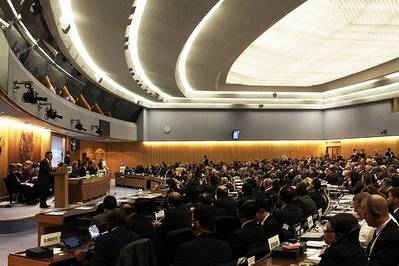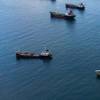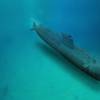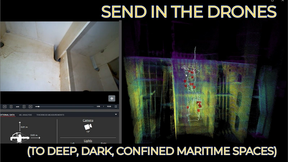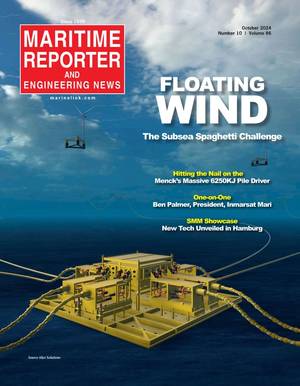1,000 Member-State Delegates Gather at IMO Assembly
Stephen Hammond, Parliamentary Under-Secretary of State for Transport, United Kingdom, welcomed delegates to the 28th IMO Assembly, the Organization's highest governing body, on behalf of the host Government.
In his opening address, Secretary-General Koji Sekimizu outlined the achievements of the Organization during the 2012 to 2013 biennium, stressing the work on passenger ship safety, following the January 2012 Costa Concordia accident; preparation for the introduction of the mandatory IMO audit scheme; the adoption of the Cape Town Agreement to implement fishing vessel safety regulations; work on maritime security and anti-piracy measures; and progress in the preparation of the Polar Code.
In the environmental field he emphasised the implementation of the energy efficiency requirements; promotion of technical cooperation and transfer of technology relating to improvement of energy efficiency of ships; the designation of Saba Bank as a new particularly sensitive sea area; the Ballast Water Management Convention implementation plan; and the adoption of six guidelines for the Hong Kong International Convention for the Safe and Environmentally Sound Recycling of Ships.
The Secretary-General referred to his objective to eradicate piracy and reduce maritime casualties by half. “On piracy, while we saw good results of our concerted efforts in the Gulf of Aden and Indian Ocean off the coast of Somalia, we are concerned about the situation in the Gulf of Guinea. We should make further efforts in this field,” Mr. Sekimizu said.
Referring efforts to reduce accidents, Mr. Sekimizu said he appreciated progress by the International Association of Lighthouse Authorities (IALA) to implement an Accident Zero Campaign, but said the issue of maritime migrants could not be neglected.
“Hundreds of people on board small boats and ships with no safety measures are my concern. On the rescue side, IMO has done a lot. But this field needs further work to improve the system to handle persons rescued at sea. The matter of migrants and asylum seekers are well beyond the remit of this Organization. But, when it comes to hundreds of people on board small unseaworthy vessels crossing over oceans and losing their lives, we should seriously consider what we can do in the field of prevention. IMO is dealing with capacity building for proper implementation of safety regulations and maritime security, and I would like to further consider what we can do in this field in the coming biennium,” Mr. Sekimizu said.



